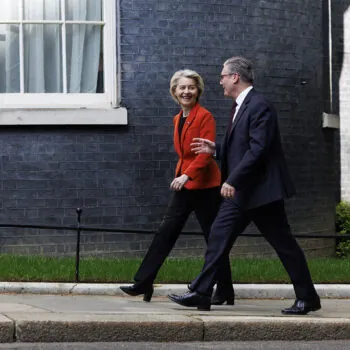Despite the logistical nightmare that was COP15, Brookings Institution, Chatham House, E3G and Institute for Environmental Security held an off-site “official side event” on climate and security for a full house of COP15 participants on December 17th.
Though UN climate change negotiations have been ongoing for more than two decades, discussions about how climate change impacts global security have never been a component of the UNFCCC process.
Having convened two climate security side events at recent UNFCCC negotiations, E3G has found that there are important benefits to linking these conversations. Participants in the UNFCCC process can benefit from the experience the security community has in constructing responses in an atmosphere of uncertainty, where a risk management approach can help ensure our ability to adjust as we learn more about what we are facing and which policy approaches are effective. And security experts need to understand where things are headed in terms of international measures to mitigate and adapt to climate change so that they can have a more accurate read of the environment that they will need to plan to.
Distinguished Panel
The COP15 side event featured leading experts discussing how climate change will impact national security broadly and through specific case studies and also explored how countries and alliances may shape their policies to respond. Where available, presentations and statements made at the event are available to download above.
Major General Muniruzzaman (Retired), President , Bangladesh Institute of Peace and Security Studies (BIPSS)
The Security Dimensions of Climate Change
Brigadier General (ret) W. Chris King, Ph.D. P.E., Dean of Academics, US Army Command and General Staff College, Fort Leavenworth, Kansas
Afghanistan: An Environmental Security Case Study in Climate Change and Security
Alexandros Papaioannou, Policy Advisor, Policy Planning Unit, NATO
Statement
Nick Mabey, CEO and Founding Director, E3G
Developing a risk management approach to delivering climate security
Cleo Paskal, Associate Fellow, Chatham House
From Constants to Variables: Effects of Environmental Change on Physical and Legal Infrastructure
The event was Chaired by Tom Spencer, Vice Chairman at the Institute for Environmental Security and Project Co-ordinator for Climate Change & the Military. Climate Change and the Military is an IES project in cooperation with a group of leading think tanks, which worked to facilitate a strong message from global military leaders to Copenhagen climate negotiators. The project resulted in a statement from a global group of military leaders calling on all governments to work for an ambitious and equitable international agreement on climate in Copenhagen; ensure that the security implications of climate change are integrated into their respective military strategies; a calls upon the military to be part of the solution by reducing its own carbon “bootprint.”
As Jerry Cope points out in The Huffington Post, “That such a distinguished panel of military leaders and strategists assembled in Copenhagen is indicative of how serious the threats posed by climate and environmental changes to the security and safety of human civilization actually are.”
Dr. Chris King’s participation was also featured in The Fort Leavenworth Lamp online recently.


